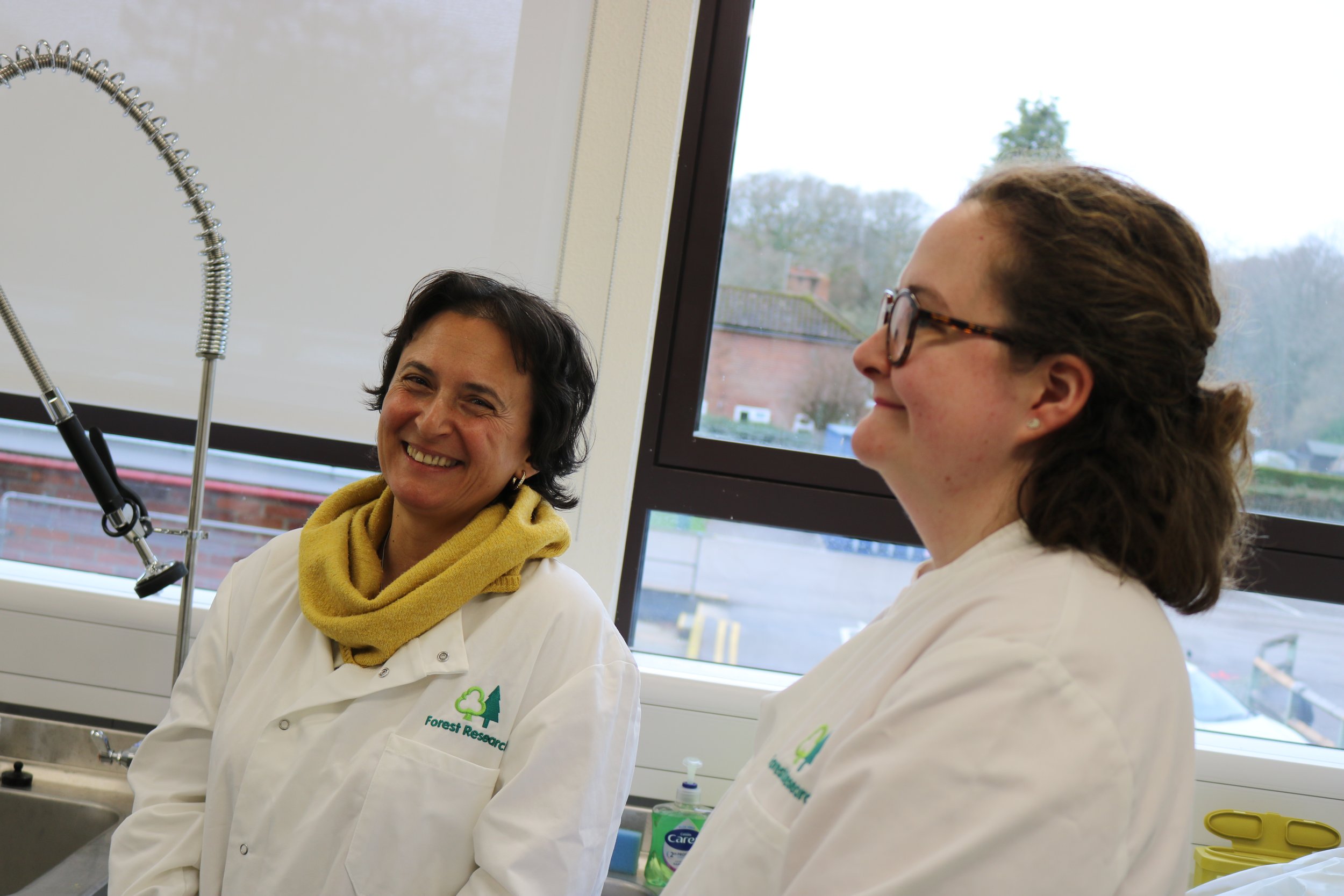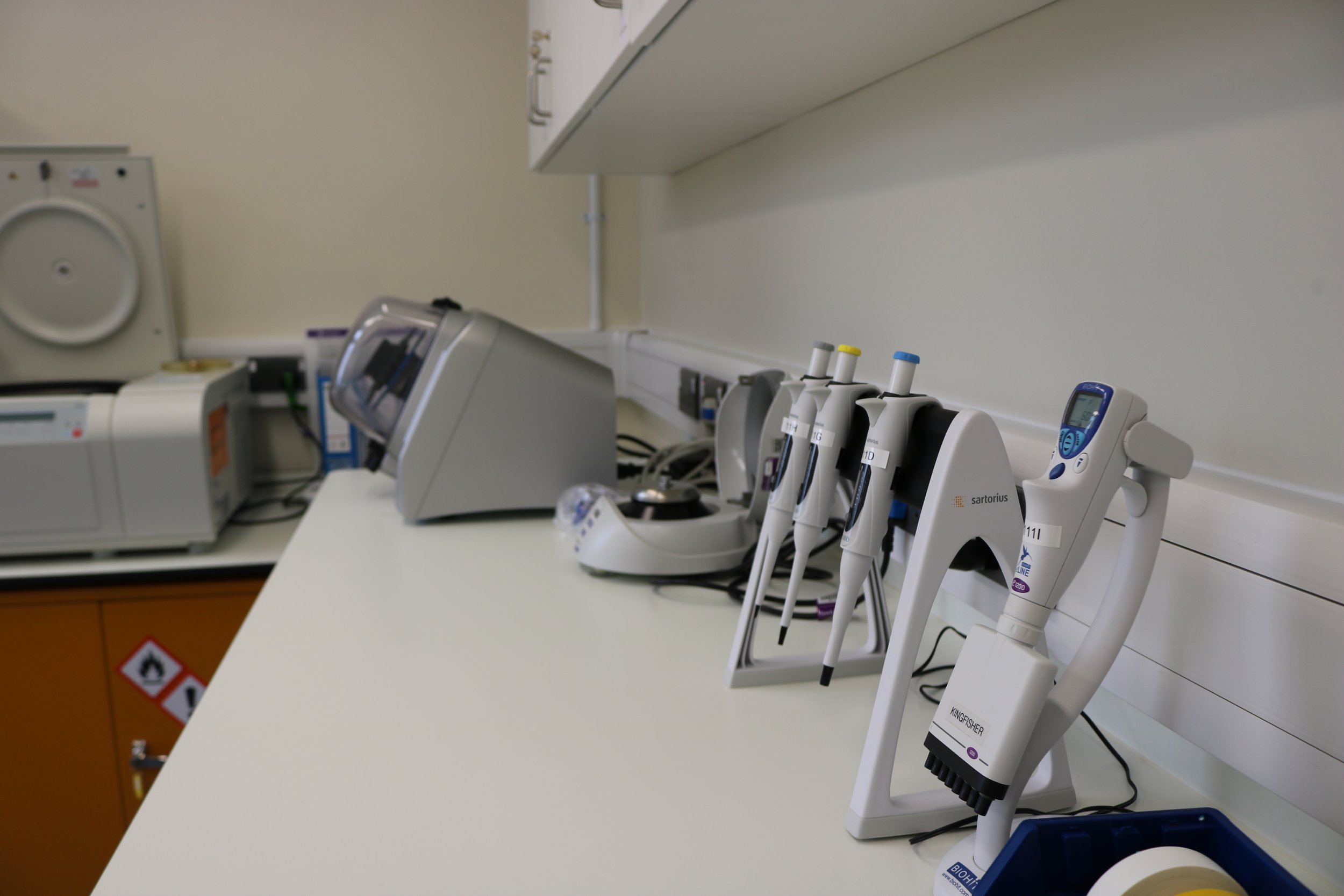A few weeks’ ago I visited the remarkable Alice Holt Research Station as a guest of Principal Pathologist Dr Sandra Denman, of Forest Research.
L – R Dr Carrie Brady – Senior Lecturer, UWE Bristol, John Orchard – Chief Executive, Woodland Heritage, Dr Elena Vanguelova – Senior Biogeochemist, Forest Research, Dr Sandra Denman – Principal Pathologist, Forest Research, Dr Mark Steer – Associate Professor, UWE Bristol, Alice Dibley – PhD student, UWE Bristol.
I made the journey to Hampshire to meet Alice Dibley who is undertaking her PhD as part of a new partnership between UWE Bristol and Woodland Heritage. Alice’s work will focus on the effects of management practices on Acute Oak Decline.
Much of the day was spent discussing the approach Alice and her colleagues would take. It was so reassuring to hear that, for Alice, advice on management practices would form a key outcome for the project. I really look forward to sharing this, and the wider outcomes of Alice’s work, with our membership and stakeholders.
“I am thrilled to have been selected to undertake this vital research into AOD and I can’t wait to get stuck in. I am also looking forward to working with Forest Research and Woodland Heritage as there is so much for me to learn from these experts.” Alice Dibley.
Alice Dibley, PhD student funded by Woodland Heritage and UWE Bristol
We were then given a tour of the facilities at Alice Holt. The variety of equipment in the laboratories was quite overwhelming to a layman, but it was a joy to see Carrie and Mark swap notes with Sandra and Elena on the differences between their respective research facilities and how they might combine forces. Just one of the many benefits of partnership working.
Dr Sandra Denman took time during the tour to explain how Forest Research uses the segregation of physical spaces in its laboratories to ensure the custody of biological samples as they move through the various processes required by their experiments.
A significant amount of Forest Research’s endeavour focuses on the analysis of stable RNA, DNA and active proteins. This small but powerful device is a common piece of equipment which helps homogenise biological materials, in this case often from trees and soil, ahead of other processes and analysis. When you are processing significant volumes of samples, it’s helpful that it can process 24 of them in 40 seconds!
By John Orchard
Authored: 12/03/2024
Last updated: 14/03/2024







